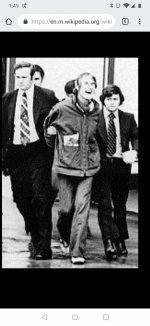I don't think the Zone in Pool is a place you can get to by reading and pondering.
In my case it developed naturally based on countless hours of Practice and an relentless commitment to and focus on winning.
I had no money when I started playing Pool at 14 and I knew I Had to win just to get by. That kind of situation forces you to Focus on Winning and that Focus makes it possible to force yourself to do what others cannot.
I now remember many situations playing where I did the impossible to win that I did not remember at the time because I was in the Zone.
If anyone is interested I can cite a few examples.
Bill Stroud
In my case it developed naturally based on countless hours of Practice and an relentless commitment to and focus on winning.
I had no money when I started playing Pool at 14 and I knew I Had to win just to get by. That kind of situation forces you to Focus on Winning and that Focus makes it possible to force yourself to do what others cannot.
I now remember many situations playing where I did the impossible to win that I did not remember at the time because I was in the Zone.
If anyone is interested I can cite a few examples.
Bill Stroud
